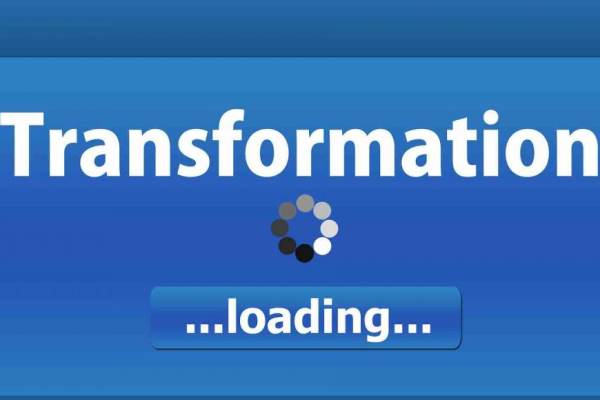Published on the 15/03/2019 | Written by Heather Wright

Minimal viable teams, outcomes and culture…
The #DX2019 Summit hit Auckland yesterday, highlighting the challenges being faced by New Zealand – and global – companies in embracing DX, with most admitting the process of digital transformation wasn’t easy.
So what were some of their key takeaways?
Minimal viable product AND minimal via team
We’ve all understand the concept of building something that meets the minimum viable requirements, and getting it to market quickly, then improving it iteratively. But former Obama Administration digital leader Tom Cochran says minimal viable teams are also crucial to avoid getting bogged down.
“I just need the minimum number of people in the room to accomplish what I’m trying to accomplish.”
But he admits, that’s unsettling for many outside the team – his team included a ‘bouncer’ to stand at the door and keep out other White House workers, who felt their value was derived from being in the meeting. As a leader, he says, it’s essential to ensure others know their value isn’t based on whether they are part of the smaller team meeting, but rather that they contribute in other, equally important ways.
The small team enabled Cochran to start launching minimal viable products such as apps in weeks, not years.
From outputs to outcomes, projects to agile…
“It’s very easy and comfortable for everyone to work through their to do list and say they’ve done everything, therefore they’re successful. But this paradigm means you can do all the things you think are the right things to do, but unless they generate outcomes and results, you weren’t successful,” says Luke Longney, Vodafone NZ digital tribe lead and business manager to CEO.
“Being really diligent about shaping the conversation about outcomes and not falling into the habit of talking about what people need to do is something that has to be constantly reinforced,” he adds. One simple step: Starting each meeting with a review of outcomes, to ensure that is the success measure.
It’s a view shared by Cochran who says: “Governments, bureaucracies, big organisations love process. So much so that they forget process is a means to an end.
“Break a few rules here and there, that’s ok. Don’t break laws or be unethical, but focus on the results, not the process.”
Working differently
Vodafone’s customer experience research in the past, was always done by one team.
Under the new model, everyone in every squad interacted with customers in every sprint.
“That was a fundamental shift,” Longney says. “The trepidation for developers having to plan for and sit down with customers and do a customer interview, was awesome, and the empathy they got out of the experience informed what they were doing, and how they thought about things in the coming weeks and months.”
Talking to customers frequently – Vodafone had 200 customer sessions in six months – meant more people had an idea of exactly what the customer wanted and could adjust on they fly, but also saw an increase in the attention to detail for changes. ‘Buy now’ buttons on the website were changed to ‘Get this plan’. Why? Because customers told Vodafone they were concerned clicking buy now would result in an immediate charge. The result? A 10 percent increase in click through.
“Small changes that are simple to do but within a project construct never get done because you don’t know who to talk to, no one is talking to a developer, you have to talk to a project manager, a BA… it all just gets too hard.”
Early wins
“Having some new technology and making some quick progress and delivering some unencumbered results is really important to motivation and to give people a view of what’s possible,” Longney says.
He cites Vodafone’s chatbot, Tobi, as an example. The chatbot, set up in six weeks, now handles as many conversations as 150 call centre staff. That’s 12 percent of Vodafone’s call centre operations and Longney says it’s increasing by 2-3 percentage points a month.
“This will conceivable get to 100, 200, 300 percent of call centre conversations because it is just much more accessible and lots more interactions in digital domains.”
Robotic process automation has also provided early wins for Vodafone. Six months into automation, Vodafone had built up to saving 4,000/month through the automation of repetitive tasks. “Targets for this year are to take us to somewhere between 15,000 to 20,000 hours.”
Legacy issues
“The other part of the equation is making sure all of your legacy technology is in shape to operate well in this new world. And that takes more time and a different level of effort,” Longney says. “Prioritising devops and particularly the deployment automation of change into those legacy environments is really important to make agile work.”
The inescapable culture question – it just goes on…
Culture was one topic no one could escape, infiltrating virtually all of the sessions. Even seasoned campaigners acknowledged culture was still a work in progress.
Air New Zealand GM digital strategy and transformation, Angela Henderson, notes that while the airline began its DX five years ago, starting with culture, it’s now returning to the culture question again as it seeks a values-based cultural model, built from the ground up, rather than top down. “We’re looking at changing the way we do that to get much more collaboration between teams, because believe it or not, even though we’ve been on this journey for a while, we still find pockets of behavioural issues, mindsets that are not quite there, and thing we need to work on with our people to enhance the experience for them and our customers.”



























